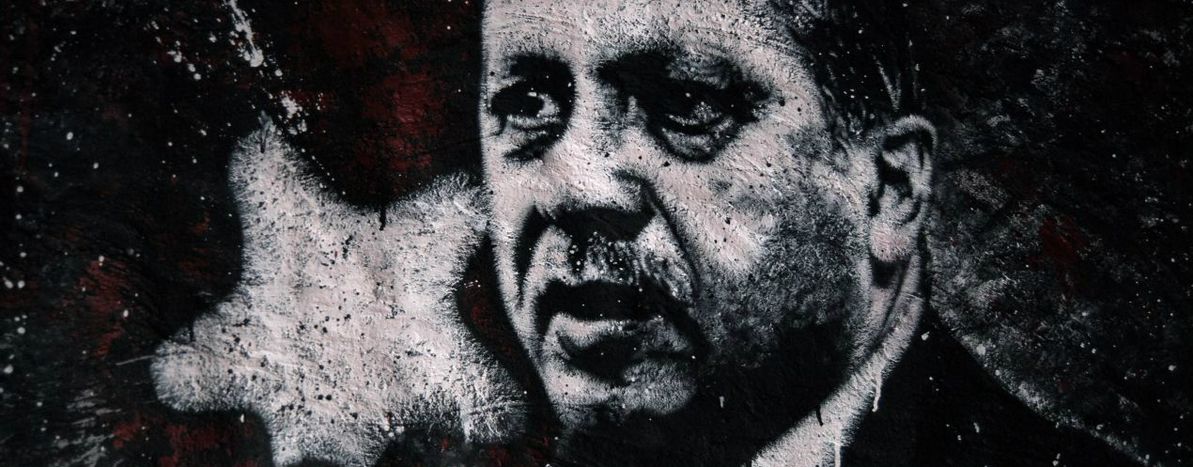
"Turkey has changed, and Europe doesn't realise it."
Published on
Translation by:
Matteo ZambonTurkey coup attempt has shaken the country’s foreign policy, and the European Union, United States and Russia will hardly stand idly by. What can we expect in the near future? We asked Gianpaolo Scarante, Italy's ambassador to Ankara until 2015.
cafébabel: How will Turkey’s foreign policy change after the coup?
Gianpaolo Scarante: Turkey’s foreign policy change has already happened. The country has changed over the last 10 years, raising many concerns as it somehow distanced itself from Western and European interests. The Turkey that was part of NATO doesn’t exist anymore. In its place is a country striving for its international identity, with a focus on the so-called "Neo-Ottomanism", the development of a Turkish “area of influence”. The question we must ask ourselves is to what extent, if any, is Turkish foreign policy still aligned with the interests of Europe and the West? It will inevitably grow more and more divergent over time – we have to get over it. I feel like Europe does not realise it.
cafébabel: Specifically, how will relations with Europe be affected?
Gianpaolo Scarante: If we look at the migrant deal, it is based on the assumption that Turkey’s national priority is EU admission. In view of this assumption, Turkey was offered more visa and renewed negotiations in return for commitment to refugee issues. The harsh reality is that Turkey no longer regards EU admission as a priority. It would be unlikely to happen in the next few years, and they know it. The EU needs to realise that it isn’t negotiating from a position of power; it isn’t keeping Turkey under its thumb. Europe, as a whole, needs to take into account the entirety of its relations with Turkey rather than focusing on just one field (immigration, economy, etc.) at a time. Not to mention the frankly unacceptable regression that is currently setting the country back decades in terms of civil rights and personal freedom.
cafébabel: How will Turkey’s relations with the United States and Russia change?
Gianpaolo Scarante: Turkey seems to be playing the field at the moment, as shown by signs of opening up towards Israel and Russia. To think that Ankara is at all costs allied with the West and the United States would be a mistake: Ankara will do what suits it. If that means an alliance with Russia, they will form an alliance of Russia. The Syrian crisis is a monumental failure for international diplomacy, the worst miscalculation ever made by Europe as we know it today. There’s a widespread attitude of pragmatism on the part of those involved, including the United States, who are now in the process of negotiating a partition of “areas of influence” in the Middle East with Russia. Turkey will choose whatever side looks more appealing. For example, if the Russians were to support them against the Kurds, the Turks will choose Russia. Today, Turkey is free, neither linked to NATO nor to the EU, and pursues national interests that don’t necessarily converge with those of Europe and the West.
cafébabel: How credible is the threat of reinstating the death penalty?
Gianpaolo Scarante: Erdoğan is a shrewd politician. Regardless of whether the death penalty will be reinstated, repression will be fierce, as we have already seen. Nonetheless, Erdoğan’s threat has forced Europe to draw a red line over the death penalty – to say that if it is reintroduced, all negotiations will be suspended – which implies that negotiations might otherwise continue. I don’t see it as a mistake on Erdoğan’s part, I think it was more of a strategic move. Of course, actually reinstating death penalty would be a change of unprecedented gravity that would isolate Turkey even more.
Erdoğan’s perception and reaction to events such as the recent coup attempt has been growing more and more impulsive over the last few years. There’s a real danger that repression may get out of control. This is what Europe should stand against, rather than the death penalty per se, which might just be a strategic move. With such harsh repression taking place in the country, we cannot even talk about negotiations or Euro-Turkish strategic relations. The fact that Turkey’s level of basic civil rights has regressed by decades after the coup is unacceptable. As I said, EU admission is not Turkey’s priority. Europe isn’t negotiating from a position of force, and it needs to realise it very quickly. Now, I am well aware that politics can’t always be moral, but we shouldn’t accept such unethical politics either. Even when negotiating the migrant deal, ethics should have been taken into greater account.
cafébabel: What developments do you see for the future?
Gianpaolo Scarante: We have to focus on the whole story rather than small chunks. And the whole story tells us that the political, diplomatic, ideological structures that emerged after World War One and lasted for almost a century are now breaking down. We need to understand that this process is happening globally and must be dealt with globally. What worries me the most is the lack of awareness on the subject at the European level.
---
Gianpaolo Scarante is currently Professor of the Theory and Practice of International Negotiations at the University of Padua.
Translated from "La Turchia è cambiata, e dobbiamo rendercene conto in fretta"



